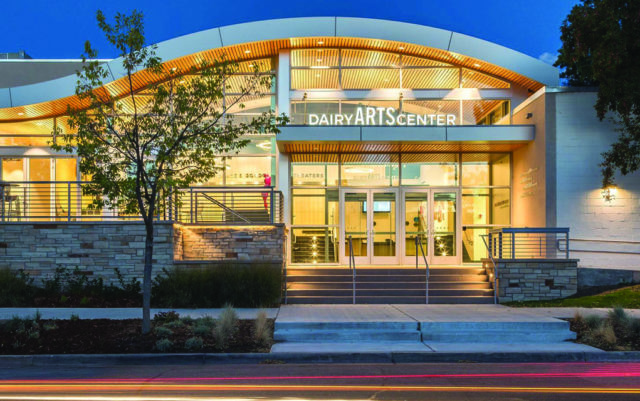
To paraphrase an old expression: In this election, you can fill your potholes and invest in the arts.
This November, City of Boulder voters will have a once-in-a-generation opportunity to shape our City’s future by voting ‘yes’ on Ballot Issue 2A. 2A is not a tax increase: It extends an existing 25-year-old general fund sales and use tax of just 15 cents on every $100 of purchases and raises approximately $7.5 million a year for the City. Under 2A, 50% ($3.75 million) of these funds are dedicated to the City’s Office of Arts & Culture to strengthen Boulder’s arts and culture ecosystem and 50% ($3.75 million) to the City’s general fund.
Most Boulder residents are surprised to learn that we spend less on cultural affairs than our Front Range neighbors: In 2023, Loveland, Arvada and Fort Collins will spend $3.2 million, $4.4 million and $5 million, respectively, versus Boulder’s budgeted $1.8 million. Chronic underinvestment in the arts leaves our cultural organizations, artists and arts educators struggling to make ends meet and risks hollowing out our arts and culture ecosystem.
Of course, we have other important uses for limited City resources, from filling potholes to addressing homelessness. Fortunately, 2A will not result in any cuts to existing City services. This has been publicly confirmed in multiple City Council meetings by City of Boulder staff, mayor Aaron Brockett and councilmember Bob Yates, both of whom are running for mayor this November and support Ballot Issue 2A. This is in part because, starting in 2025, the first year of the tax extension, the City will have an additional $10 million a year in general fund spending power due to the new Boulder Public Library District, a separate entity that voters approved last year. The Library District shifts library expenses out of the City’s budget, in perpetuity.
Although the amount of dedicated arts funding would be transformative for the arts and the community, it represents a mere 2% of the City’s general fund. Further, unlike the expense of filling potholes and providing other City services expenditures, the arts are an investment with a clear economic return. A just-released study commissioned by the City shows that Boulder’s arts and culture nonprofits have an annual direct economic impact of over $115 million. This includes incremental spending by audiences ($61.6 million), household income ($80 million) and City and County taxes ($4.6 million).
This is money that helps keep our businesses open, sustains our families and workers and provides incremental funding to address other city priorities (did I mention potholes?). Meanwhile, 2A also will provide a much-needed lifeline for Boulder’s long-underfunded arts and culture sector. The City’s 2015 cultural master plan clearly outlines the path toward investing in a strong arts and culture ecosystem. Unfortunately, since its adoption, the current budget has proven insufficient to meet our master plan goals.
Finally, aside from the economic benefits to the arts that Ballot Issue 2A will help secure, I quote from the comments of Jude Landsman, vice president of our local NAACP: “Boulder’s Office of Arts and Culture has done more to support racial equity than any other City department to date.” Decades of research show that a thriving arts and culture landscape benefits the whole community — helping to bring us together, making us individually and collectively healthier, happier, more tolerant, more welcoming and more resilient.
Ballot Issue 2A is a win-win for all Boulder residents. It will ensure the stability of essential services, sustain our arts and culture scene and build a more equitable, connected and vibrant community for generations to come.
Please visit 2AYesforAll.com to learn more and join me in voting ‘yes’ on 2A!
Deborah Malden is the arts liaison and advisor at the Boulder Chamber, a board member of Create Boulder, and chair of the Yes on 2A campaign.
This opinion does not necessarily reflect the views of Boulder Weekly.














